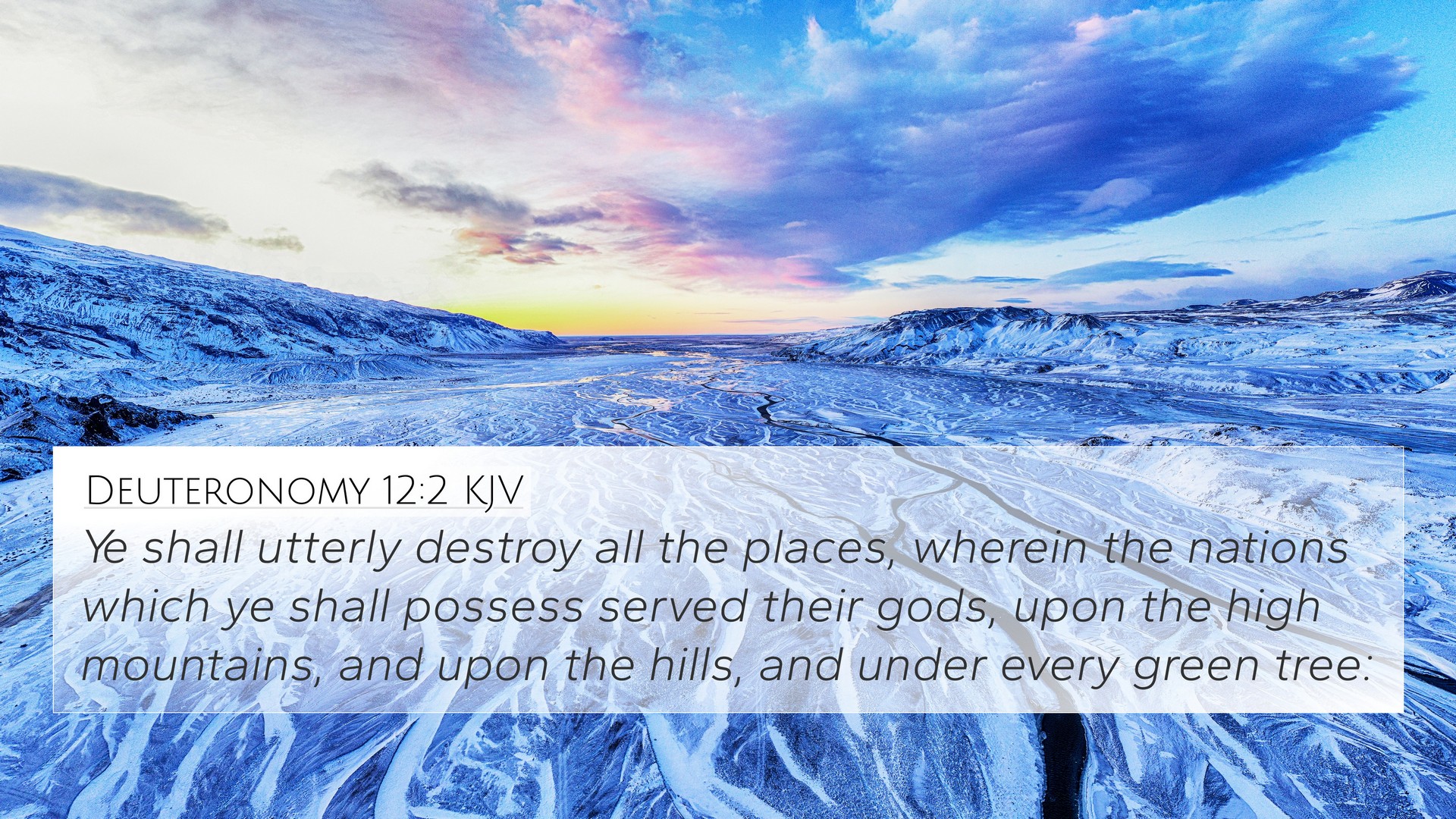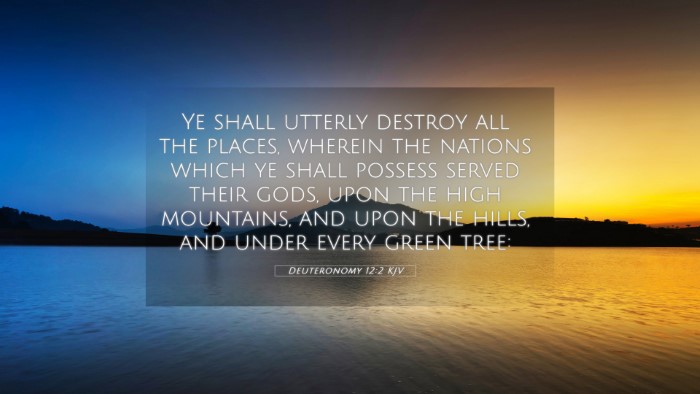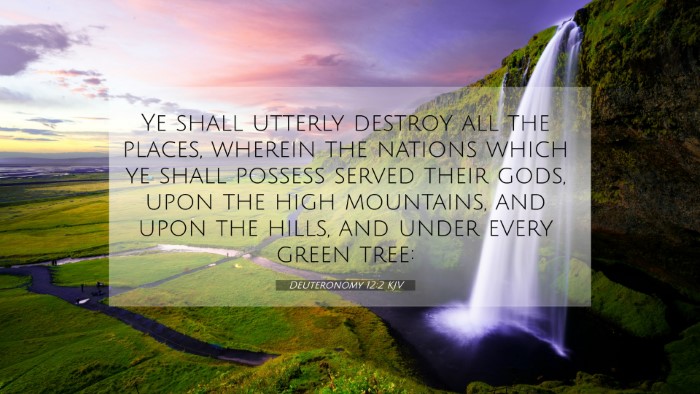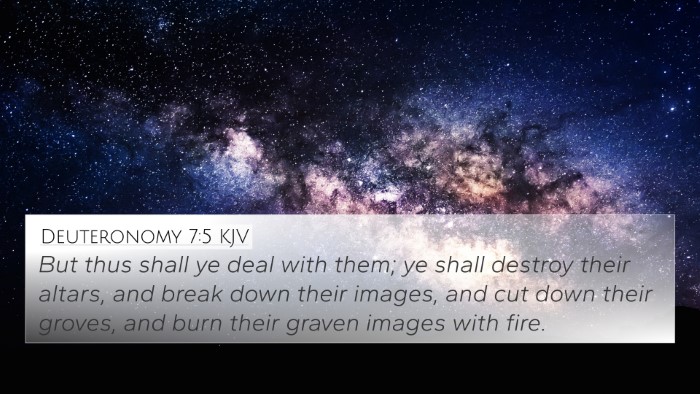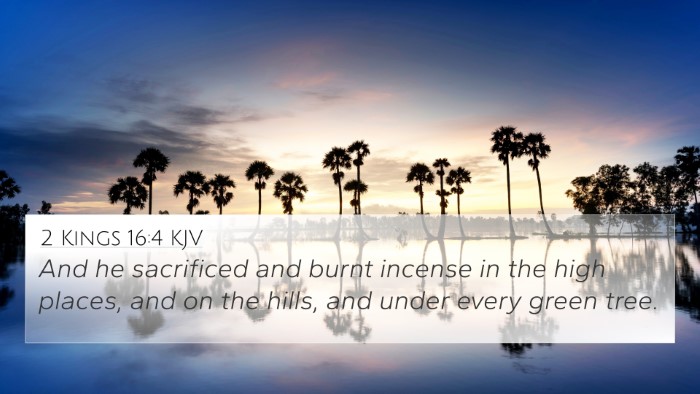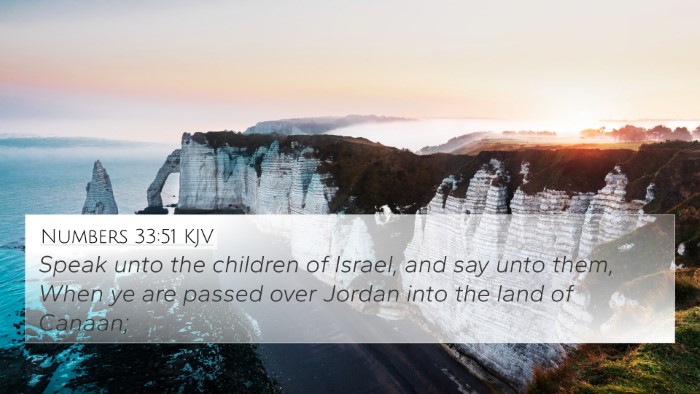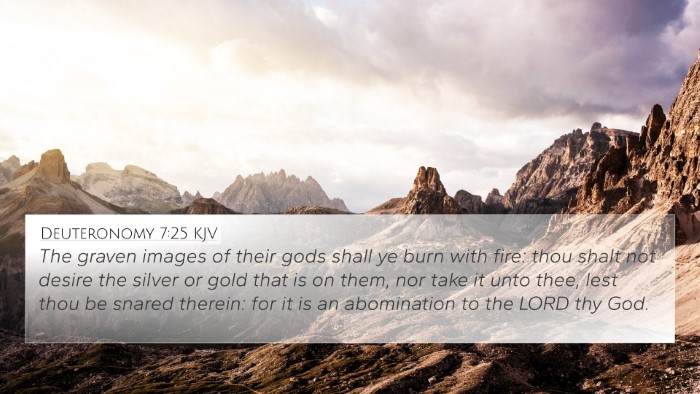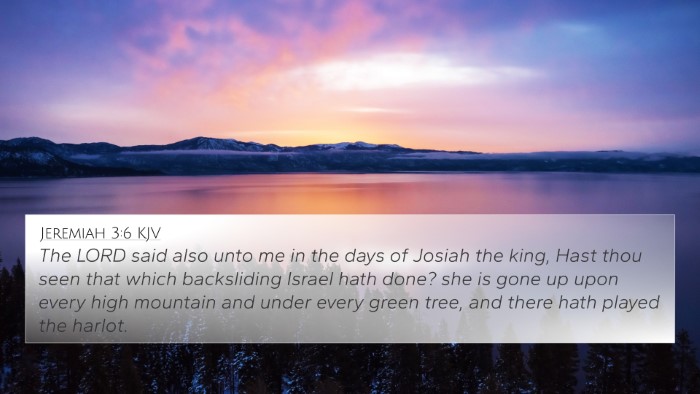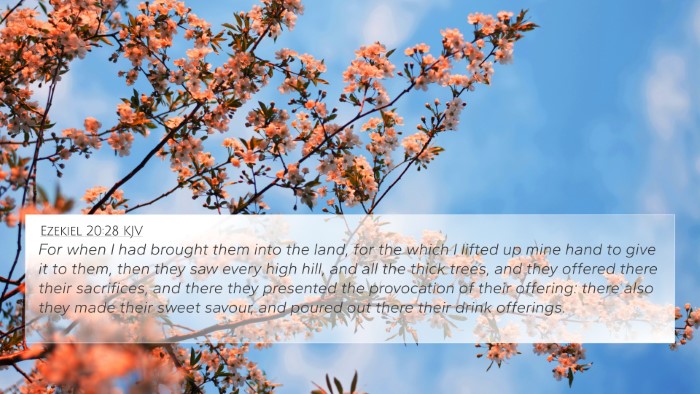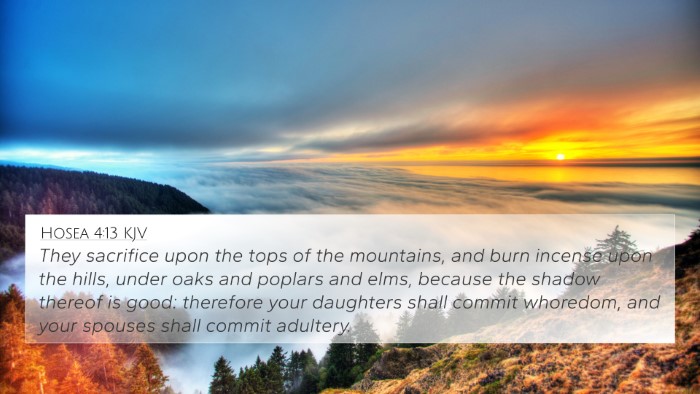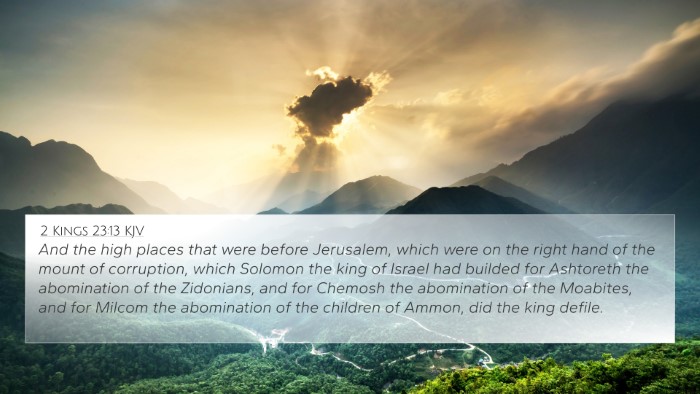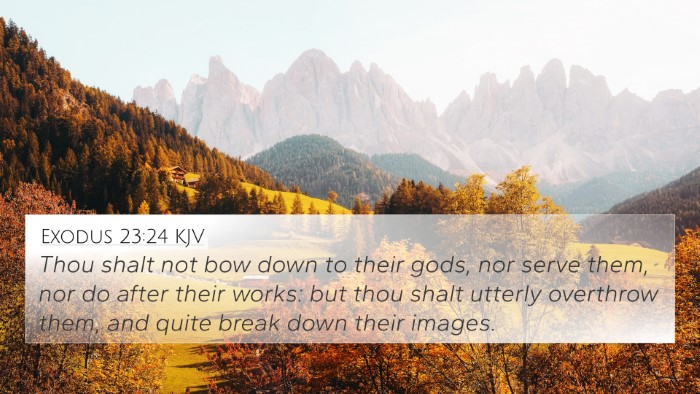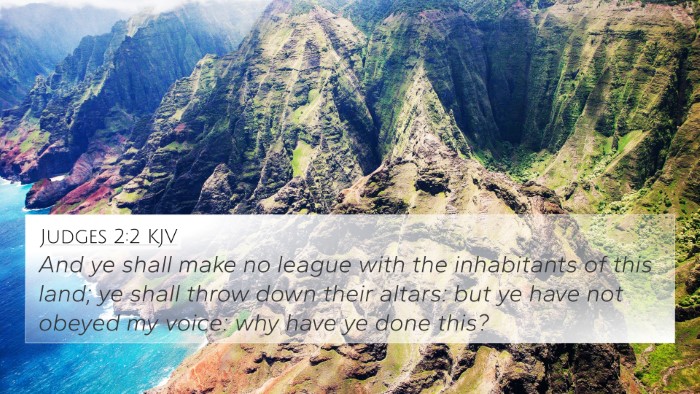Understanding Deuteronomy 12:2
Verse (Deuteronomy 12:2): "You must destroy completely all the places where the nations you are dispossessing worship their gods—on the high mountains, on the hills and under every spreading tree."
Summary of Interpretation
This verse underscores God's command to the Israelites to eradicate all forms of idolatry and pagan worship as they enter the Promised Land. It emphasizes the need for purity in worship and the rejection of practices that lead to spiritual corruption. Public domain commentaries highlight several key themes surrounding this mandate.
Thematic Analysis
In analyzing Deuteronomy 12:2, several themes emerge:
- Idolatry and Its Dangers: The command to destroy pagan worship sites signals the danger that idol worship posed to the spiritual integrity of the Israelites. Idolatry is often linked with moral decay.
- Divine Authority: The directive reflects God's authority over worship practices and the importance He places on exclusive devotion to Him.
- Preservation of National Identity: This step is necessary to prevent assimilation into the corrupt practices of surrounding nations, ensuring the preservation of Israel's unique identity as God's chosen people.
- Consequences of Disobedience: Failure to comply with this command could lead to severe repercussions, including spiritual downfall and loss of divine favor.
Cross-References for Further Study
To better understand Deuteronomy 12:2, one can explore the following related scripture references:
- Exodus 34:13: "Break down their altars, smash their sacred stones and cut down their Asherah poles."
- Leviticus 26:30: "I will destroy your high places and cut down your incense altars and pile your dead bodies on the lifeless forms of your idols."
- Jeremiah 10:2: "This is what the Lord says: Do not learn the ways of the nations or be terrified by signs in the heavens."
- 1 Kings 14:24: "There were even male shrine prostitutes in the land; the people engaged in all the detestable practices of the nations the Lord had driven out before the Israelites."
- 2 Kings 23:4: "The king ordered Hilkiah the high priest, the priests next in rank, and the doorkeepers to remove from the temple of the Lord all the articles made for Baal and Asherah and all the starry hosts."
- Psalms 97:7: "All who worship images are put to shame, those who boast in idols—worship him, all you gods!"
- Isaiah 30:22: "Then you will desecrate your idols overlaid with silver and your images covered with gold; you will throw them away like a menstrual cloth and say to them, ‘Away with you!’”
Comparative Bible Verse Analysis
In a broader biblical context, Deuteronomy 12:2 serves as a crucial reference in themes of idolatry. Several other verses can be drawn upon to compare and contrast its messages.
- Matthew 4:10: Jesus asserts, "Worship the Lord your God and serve him only," linking back to the exclusivity of worship.
- Revelation 21:8: The fate of those who engage in idol worship is emphasized here, demonstrating continuity in the biblical narrative regarding idolatry.
- Acts 17:29: Paul’s address at the Areopagus reinforces the idea that God cannot be represented by man-made idols.
Tools for Bible Cross-Referencing
Utilizing bible cross-reference guides can enhance one’s understanding of scripture connections. Below are methods and resources:
- Bible Concordance: A comprehensive list of topics and verses, helpful for locating related passages.
- Cross-Reference Bible Study: Engage with different texts that discuss similar themes, enriching contextual meaning.
- Bible Chain References: A method for linking verses thematically or by storyline.
Inter-Biblical Dialogue
Engaging in inter-biblical dialogues leads to a deeper understanding of theological implications. The connections between Old and New Testament verses provide a comprehensive view of God’s overarching narrative:
- How to Find Cross-References: Use search tools in digital Bibles or concordances to find thematic or direct connections.
- Identifying Connections: Pay attention to prophetic scriptures in the Old Testament that are fulfilled or referenced in the New Testament.
- Comparative Study: Analyze parallels in teachings across Gospels for cohesive understanding.
Conclusion
Deuteronomy 12:2 serves as a foundational mandate concerning worship and idolatry within the Israelite community. Through careful study and cross-referencing, believers can uncover a wealth of related scripture that emphasizes God's desire for His people to be set apart, dedicated to true worship without compromise. This responsibility resonates throughout biblical history, inviting further exploration and reflection on the themes of faithfulness and devotion.
